|
My week of shiva was a profound experience, and I am grateful to everyone who took the time to touch base with me, whether by phone or FaceBook, e-mail or of course, by paying a shiva call or by your presence at one of the three shiva minyanim at my home. From time to time I will be sharing some reflections on my mourning journey. I welcome you to share thoughts from your own shiva experience. If you do so, please post it on this blog as opposed to Facebook. The power of Jewish practice during mourning. I write this as thousands mourn those slain in this week’s Jerusalem massacre. I cannot begin to imagine the grief of those who will be mourning there in the days and weeks to come. My experience is obviously a different one. What is common is that community will gather around the mourners and hold them within the structure that has been built with חסד- kindness - by those who came before us. How indebted we are to their insight, and to the container that is shiva, shloshim, and shana. Already I have begun to sense the process beginning to work - from mourning, to harvesting, to integration. The process is not a linear one, and I can powerfully feel that it will remain active within me for a long time to come. ¨¨¨¨¨¨¨¨¨¨¨ I was pleasantly surprised by the emotional power of Facebook. Many of you read my original post about my mother’s passing. It received the highest number of hits of anything I have ever posted, over 300 in 3 days on FB and on Weebly where my blog is hosted. Many of you posted condolences, and some of you IM’d me, including just this second, someone who I have not spoken to or seen for perhaps 25 years and who has never met my mother! He wrote: “Just saw your brother in law in Denver and he told me about your recent loss. I am very sorry to hear the news. May you and your family be blessed with nechama, comfort and support.” How blessed I am. News travels fast in our small, tightly woven Jewish world. I sometimes joke that there are only 36 Jews in the world and we all run around in circles, making contact with each other over and over again. As a mourner, I feel sonsolation from being held by my community. ¨¨¨¨¨¨¨¨¨¨¨¨ I could not help but notice that several people commented on my sister’s FB page: “Is there anything that I can do?” or “Please let me know what I can do?” Not to say that we Jews have a monopoly on kindness, but these offers came from non Jews. Yidn are blessed to have a response in the form of action already put in place by tradition. Renée shared with me that a non-Jewish friend of hers was so moved by Renée’s experience during the mourning process after her mother died that the friend took on a similar practice after the loss of a loved one in her life. Such is the power of our tradition. We don’t offer - we do. One friend offered to pick me up from the train station when I arrived post burial in DC from NJ; another sent a platter of food that lasted all week; another showed up with a carload of food that could feed an entire town, bought by monies collected from 8 other friends; each night 25-30 friends showed up for shiva minyanim, listened to me tell stories about my mom, sang with me, prayed with me, laughed with me, and then knew when to leave, all except the few who lingered to ease my transition from full house to being alone with my thoughts once again.
7 Comments
The Zen master Hakuin was praised by his neighbors as one living a pure life.
A beautiful Japanese girl whose parents owned a food store lived near him. Suddenly, without any warning, her parents discovered she was with child. This made her parents very angry. She would not confess who the man was, but after much harassment at last named Hakuin. In great anger the parents went to the master. “Is that so?” was all he would say. When the child was born, the parents brought it to the Hakuin, who now was viewed as a pariah by the whole village. They demanded that he take care of the child since it was his responsibility. “Is that so?” Hakuin said calmly as he accepted the child. A year later the girl-mother could stand it no longer. She told her parents the truth – that the real father of the child was a young man who worked in the fishmarket. The mother and father of the girl at once went to Hakuin to ask his forgiveness, to apologize at length, and to get the child back again. Hakuin was willing. In yielding the child, all he said was: “Is that so?” ºººººººººººººººººººººººººººººººººººº My late rebbe, R' Zalman Schachter-Shalomi, zt"l, (זכר צדיק לברכה) was a master storyteller. He taught, in the name of Abraham Joshua Heschel zt"l: "a mayse is a story in which the soul surprises the mind". "A Year of Stories" is dedicated to his memory. I invite you to forward the link to these stories so that they find their way into the hearts of other listeners and tellers. ∞∞∞∞∞∞∞∞∞∞∞∞∞∞∞∞∞ Please consider offering a tax deductible donation to support this project and the work of DC's Jewish Renewal community Minyan Oneg Shabbat. A shout out to Judy Young for her generous offering in support of this project. ≠≠≠≠≠≠≠≠≠≠≠≠≠≠≠≠≠≠ If you would like to be added to the growing list of "Year of Stories" followers, let me know at RebMarko@gmail.com, with "Year of Stories" in the subject line. My mother, Elsie Novak, died peacefully in her sleep last Thursday evening the 6th of November at 10:10pm, the 14th day of Cheshvan. My mother often shared with me her deepest fear that the death process be a painful one. Thank G!d, it was quite the opposite.
What I sensed over her last few days was that her soul was disentangling itself from her body, as if it were undoing the stitching that attached it to its physical container. In BT Moed Katan 28a, we find this story: “Rava was seated at the bedside of Rabbi Nachman, and he saw that his teacher was dying. Said Rabbi Nachman to him, ‘Please tell the Angel of Death not to torment me.’ To which Rava replies, “Why are you asking me to do this for you? Are you not an ‘adam chashuv’, a person of status? Rabbi Nachman responds and says, “Before the Angel of Death, who is esteemed, who is regarded, who is distinguished?” Rava then says, “Will you show yourself in a dream to me after you die?”, and Rabbi Nachman replies that he will if he can. Sure enough, some time after he dies, Rabbi Nachman appears to Rava in a dream. Rava asks him the question that we would all like to ask if we could. He says to him, “Did you suffer much pain while you were dying?” Rabbi Nachman says; “It was like removing a hair from a glass of milk.” A few years ago I started to include in my daily davvenen, in the paragraph that begins with shma koleynu, my prayer that when it was time for my mother's soul to return to its' source, that it do so without pain, like "removing a hair from a glass of milk." I don't know which hurts more, when prayers are realized or when they are not, because my heart is broken open and my tears flow like rain from the very notion that my prayer has been answered. Thanks to all who have written to express your condolences. Everyone should be as blessed as I am, to feel held in times of sorrow by sacred community, both near and far. I look forward to sharing more with you about my mom in the coming year. This is a well known story, from M. Scott Peck's book, The Different Drum. I include it in this series because (a) I like it and (b) it is used so often within the context of community building. Have you ever had the occasion to use it?  The story concerns a monastery that had fallen upon hard times. Once a great order, as a result of waves of antimonastic persecution in the seventeenth and eighteenth centuries and the rise of secularism in the nineteenth, all its branch houses were lost and it had become decimated to the extent that there were only five monks left in the decaying mother house: the abbot and four others, all over seventy in age. Clearly it was a dying order. In the deep woods surrounding the monastery there was a little hut that a rabbi from a nearby town occasionally used for a hermitage. Through their many years of prayer and contemplation the old monks had become a bit psychic, so they could always sense when the rabbi was in his hermitage. "The rabbi is in the woods, the rabbi is in the woods again " they would whisper to each other. As he agonized over the imminent death of his order, it occurred to the abbot at one such time to visit the hermitage and ask the rabbi if by some possible chance he could offer any advice that might save the monastery. The rabbi welcomed the abbot at his hut. But when the abbot explained the purpose of his visit, the rabbi could only commiserate with him. "I know how it is," he exclaimed. "The spirit has gone out of the people. It is the same in my town. Almost no one comes to the synagogue anymore." So the old abbot and the old rabbi wept together. Then they read parts of the Torah and quietly spoke of deep things. The time came when the abbot had to leave. They embraced each other. "It has been a wonderful thing that we should meet after all these years, "the abbot said, "but I have still failed in my purpose for coming here. Is there nothing you can tell me, no piece of advice you can give me that would help me save my dying order?" "No, I am sorry," the rabbi responded. "I have no advice to give. The only thing I can tell you is that the Messiah is one of you." When the abbot returned to the monastery his fellow monks gathered around him to ask, "Well what did the rabbi say?" "He couldn't help," the abbot answered. "We just wept and read the Torah together. The only thing he did say, just as I was leaving --it was something cryptic-- was that the Messiah is one of us. I don't know what he meant." In the days and weeks and months that followed, the old monks pondered this and wondered whether there was any possible significance to the rabbi's words. The Messiah is one of us? Could he possibly have meant one of us monks here at the monastery? If that's the case, which one? Do you suppose he meant the abbot? Yes, if he meant anyone, he probably meant Father Abbot. He has been our leader for more than a generation. On the other hand, he might have meant Brother Thomas. Certainly Brother Thomas is a holy man. Everyone knows that Thomas is a man of light. Certainly he could not have meant Brother Elred! Elred gets crotchety at times. But come to think of it, even though he is a thorn in people's sides, when you look back on it, Elred is virtually always right. Often very right. Maybe the rabbi did mean Brother Elred. But surely not Brother Phillip. Phillip is so passive, a real nobody. But then, almost mysteriously, he has a gift for somehow always being there when you need him. He just magically appears by your side. Maybe Phillip is the Messiah. Of course the rabbi didn't mean me. He couldn't possibly have meant me. I'm just an ordinary person. Yet supposing he did? Suppose I am the Messiah? O God, not me. I couldn't be that much for You, could I? As they contemplated in this manner, the old monks began to treat each other with extraordinary respect on the off chance that one among them might be the Messiah. And on the off off chance that each monk himself might be the Messiah, they began to treat themselves with extraordinary respect. Because the forest in which it was situated was beautiful, it so happened that people still occasionally came to visit the monastery to picnic on its tiny lawn, to wander along some of its paths, even now and then to go into the dilapidated chapel to meditate. As they did so, without even being conscious of it, they sensed the aura of extraordinary respect that now began to surround the five old monks and seemed to radiate out from them and permeate the atmosphere of the place. There was something strangely attractive, even compelling, about it. Hardly knowing why, they began to come back to the monastery more frequently to picnic, to play, to pray. They began to bring their friends to show them this special place. And their friends brought their friends. Then it happened that some of the younger men who came to visit the monastery started to talk more and more with the old monks. After a while one asked if he could join them. Then another. And another. So within a few years the monastery had once again become a thriving order and, thanks to the rabbi's gift, a vibrant center of light and spirituality in the realm. (Author unknown) (Note: I prepared this story before my mother died last Thursday at the age of 98. I will be sharing some of her story with you in the weeks to come) ºººººººººººººººººººººººººººººººººººº My late rebbe, R' Zalman Schachter-Shalomi, zt"l, (זכר צדיק לברכה) was a master storyteller. He taught: "a good story is one where the mind surprises the heart". "A Year of Stories" is dedicated to his memory. I invite you to forward the link to these stories so that they find their way into the hearts of other listeners and tellers. ∞∞∞∞∞∞∞∞∞∞∞∞∞∞∞∞∞ Please consider offering a tax deductible donation to support this project and the work of DC's Jewish Renewal community Minyan Oneg Shabbat. A shout out to Judy Young for her generous offering in support of this project. ≠≠≠≠≠≠≠≠≠≠≠≠≠≠≠≠≠≠ If you would like to be added to the growing list of "Year of Stories" followers, let me know at RebMarko@gmail.com, with "Year of Stories" in the subject line. This section from The Velveteen Rabbit is very close to my heart, as it was used in a play written by The Living Stage Theater Company, where I served as music director/workshop leader from 1977 to 1985. Certain moments captured in art never fail to bring me to tears - when Dorothy says good-bye to the scarecrow; when Ray plays catch with his dad; and this. It's my visceral reaction from experiencing Real, face to face. 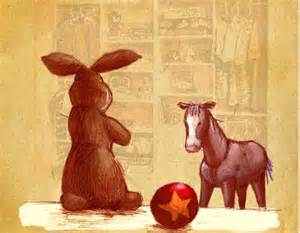 The Skin Horse had lived longer in the nursery than any of the others. He was so old and most of the hairs in his tail had been pulled out to string bead necklaces. For nursery magic is very strange and wonderful, and only those playthings that are old and wise and experienced like the Skin Horse understand all about it. "What is REAL?" asked the Rabbit one day, when they were lying side by side near the nursery fender, before Nana came to tidy the room. "Does it mean having things that buzz inside you and a stick-out handle?" "Real isn't how you are made," said the Skin Horse. "It's a thing that happens to you. When a child loves you for a long, long time, not just to play with, but REALLY loves you, then you become Real." "Does it hurt?" asked the Rabbit. "Sometimes," said the Skin Horse, for he was always truthful. "When you are Real you don't mind being hurt." "Does it happen all at once, like being wound up," he asked, "or bit by bit?" "It doesn't happen all at once," said the Skin Horse. "You become. It takes a long time. That's why it doesn't happen often to people who break easily, or have sharp edges, or who have to be carefully kept. Generally, by the time you are Real, most of your hair has been loved off, and your eyes drop out and you get loose in your joints and very shabby. But these things don't matter at all, because once you are Real you can't be ugly, except to people who don't understand." "I suppose you are real?" said the Rabbit. And then he wished he had not said it, for he thought the Skin Horse might be sensitive. But the Skin Horse only smiled. "The Boy's Uncle made me Real," he said. "That was a great many years ago; but once you are Real you can't become unreal again. It lasts for always." from The Velvetween Rabbit, by Margery Williams ºººººººººººººººººººººººººººººººººººº My late rebbe, R' Zalman Schachter-Shalomi, zt"l, (זכר צדיק לברכה) was a master storyteller. He taught: "a good story is one where the mind surprises the heart". "A Year of Stories" is dedicated to his memory. I invite you to forward the link to these stories so that they find their way into the hearts of other listeners and tellers. ∞∞∞∞∞∞∞∞∞∞∞∞∞∞∞∞∞ Please consider offering a tax deductible donation to support this project and the work of DC's Jewish Renewal community Minyan Oneg Shabbat. A shout out to Judy Young for her generous offering in support of this project. ≠≠≠≠≠≠≠≠≠≠≠≠≠≠≠≠≠≠ If you would like to be added to the growing list of "Year of Stories" followers, let me know at RebMarko@gmail.com, with "Year of Stories" in the subject line. 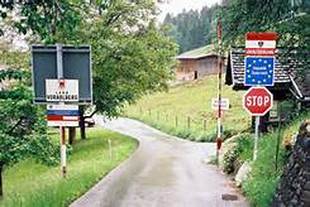 There was once a Swiss guard who worked at the border of Austria. He had worked there for many years and took a great deal of pride in his work. One morning an Austrian man arrived at the border, riding a bicycle. On the front of the bike was a basket filled with sand. The guard eyed the man suspiciously, and suspecting that the Austrian might be a smuggler, brought out a special comb he kept for just a purpose, and began to sift through the sand in the basket. He found nothing, only sand, and waved the man through the gate. The same thing happened the next month, as the Austrian arrived on a bicycle with the basket filled with sand. The border guard went through the same process, at first eyeing the Austrian with suspicion, then sifting through the sand with his special comb, and until, finding nothing, allowing the Austrian to again cross the border. The scene repeated itself month after month, year after year. During this time the border guard engaged the Austrian in small talk - learning his name (it was Yosef) learning about his family (he was married with a wife, who was a school teacher, and had 2 children), and of course his reason for crossing the border (to visit a favorite aunt and uncle). Each month they exchanged pleasantries, and as time passed the border guard still remained suspicious, and though he never found anything, he kept on looking... month after month...for 30 years! Finally, one day, the Swiss guard said to the Austrian man, "I must ask you a question that has been on my mind many years. This is my last day of work - I am retiring. After all these years, I still suspect you have been a smuggler, and it is driving me near mad. Now I ask you - I must know - are you indeed a smuggler?" The Austrian man hesitated, and the Swiss guard reassured him. "Do not worry - I give you my word of honor that I will not arrest you. But for my own peace of mind, I must know." "Very well," said the Austrian. "Then I will tell you - I am indeed a smuggler." "Ha ha," laughed the guard, relieved at last to know that his suspicions had not been unfounded. "I knew it!" He hesitated for a moment and then continued, "But each month I looked through your basket and found nothing but sand. Tell me, please, what have you been smuggling?" And with eyes smiling, the Austrian replied, "Bicycles." (Story re-crafted by R' Mark Novak) My late rebbe, R' Zalman Schachter-Shalomi, zt"l, (זכר צדיק לברכה) was a master storyteller. He taught: "a good story is one where the mind surprises the heart". "A Year of Stories" is dedicated to his memory. I invite you to forward the link to these stories so that they find their way into the hearts of other listeners and tellers.
∞∞∞∞∞∞∞∞∞∞∞∞∞∞∞∞∞ Please consider offering a tax deductible donation to support this project and the work of DC's Jewish Renewal community Minyan Oneg Shabbat. A shout out to Judy Young for her generous offering. ≠≠≠≠≠≠≠≠≠≠≠≠≠≠≠≠≠ If you would like to be added to the growing list of "Year of Stories" followers, let me know at RebMarko@gmail.com, with "Year of Stories" in the subject line.
And here's yet another explanation!
While aboard his ark, Noah assigned the two dogs responsibility for patrolling the ark. It was the dogs' job to check on all the other animals, and to report back to Noah and his wife Na’ama. This included using their superior sense of smell to detect anything that was, let us say, kind of fishy. One day, the dogs were taking their daily stroll when they noticed a coin-sized leak, through which water was rushing in at a rapid rate. They looked at each other and knew instinctively what to do. One dog ran for help, while the other dog gallantly stuck her nose in the hole to plug up the leak. In what seemed like an eternity, Noah and Na'ama came running, to find the poor dog in great pain and gasping for breath. They immediately relieved him of her duties and quickly filled the hole with pitch, averting what could have been a major disaster. After the work was completed, Noah and Na'ama pawsed, and realizing what a ruff experience it had been, spoke to the dog saying "Little dog, you kept us all safe - our family, and all the animals - with your little nose. All future generations will know of your great deed, as your nose will always be cold and wet, just as it is today." This tail is done, and now you know another story explaining why dog's nose has fur-ever remained cold and wet! (Origin unknown - retold by R' Mark Novak, silly wabbit) ºººººººººººººººººººººººººººººººººººº My late rebbe, R' Zalman Schachter-Shalomi, zt"l, (זכר צדיק לברכה) was a master storyteller. He taught: "a good story is one where the mind surprises the heart". "A Year of Stories" is dedicated to his memory. I invite you to forward the link to these stories so that they find their way into the hearts of other listeners and tellers. ∞∞∞∞∞∞∞∞∞∞∞∞∞∞∞∞∞ Please consider offering a tax deductible donation to support this project and the work of DC's Jewish Renewal community Minyan Oneg Shabbat. A shout out to Judy Young for your generous offering in support of this project. ≠≠≠≠≠≠≠≠≠≠≠≠≠≠≠≠≠≠ If you would like to be added to the growing list of "Year of Stories" followers, let me know at RebMarko@gmail.com, with "Year of Stories" in the subject line.  A rebbe was asked to come teach in a distant village. Having no rabbi of their own, the community was very excited and each person prepared for the rabbi's visit by pondering what question he or she might ask him. Upon his arrival the community welcomed the rabbe warmly, first with a simple meal and then escorting him to his room where he could rest after his long journey. Refreshed from his nap, he was then taken to the large community room where people had gathered excitedly to ask their questions. The room buzzed with anticipation. Upon entering the rabbe began to walk around the room, making eye contact with each person present. He then began to sing a sweet, contemplative Hasidic melody. "Yai dai dai...yai dai dai...yai dai dai dum." As he sang, he walked slowly, purposefully, continuing to make eye contact, with one person, and then another, until one person, and then another, joined him in the niggun... "Yai dai dai...yai dai dai...yai dai dai dum..." ...until everyone was singing with him, sweetly and contemplatively. The rebbe began to sing a little bit faster, and the people followed his lead. As he picked up the tempo, he picked up his feet, and started to dance, arms spread wide, his entire body bouncing in step with the melody. The people were caught up unawares, and in the joy of the moment, found themselves dancing and singing alone/together. Then without notice, the rabbe's dance gradually began to slow, and with it the song as well, until it reached a gentle end. Some people smiled, while others wiped tears from their cheeks. The rebbe cast his eyes about the room, and gently said, “I trust that I have answered all of your questions.” (Origin unknown, retold by R' Mark Novak) ºººººººººººººººººººººººººººººººººººº My late rebbe, R' Zalman Schachter-Shalomi, zt"l, (זכר צדיק לברכה) was a master storyteller. He taught: "a good story is one where the mind surprises the heart". "A Year of Stories" is dedicated to his memory. I invite you to forward the link to these stories so that they find their way into the hearts of other listeners and tellers. ∞∞∞∞∞∞∞∞∞∞∞∞∞∞∞∞∞ Please consider offering a tax deductible donation to support this project and the work DC's Jewish Renewal community Minyan Oneg Shabbat. A shout out to Judy Young for her generous offering. ≠≠≠≠≠≠≠≠≠≠≠≠≠≠≠≠≠≠ If you would like to be added to the growing list of "Year of Stories" followers, let me know at RebMarko@gmail.com, with "Year of Stories" in the subject line. More a teaching than a story, file it for next year to share on Shabbat SukkotThe Voorker Rav and The Kotzker Rebbe were discussing the relative merits of Sukkot and Shabbat.
Comparing the different mitzvot that are observed on Sukkot the Voorker Rav declared, "I prefer the mitzvah of dwelling in the Sukkah over the mitzvah of the Dalet Minim, the Four Species. After all, when you let go of the lulav and etrog, you let go of the kedushah, the holiness, whereas when you are in the Sukkah you cannot let go; the sanctity completely surrounds you." The Kotzker Rebbe nodded his approval, but responded, "Yes, it is true that the Sukkah has this advantage, but, when compared to Shabbat, even the Sukkah falls short. After all, one can walk out of a Sukkah, but one can never walk out of Shabbat, no matter where in the world a person is and no matter his or her level of observance. For those hours it is Shabbat. You cannot escape it - Shabbat is completely enveloping." In praising the Sukkah, the Voorker Rav was praising the concept of kedushat makom, the sanctity of space/place. The Kotzker Rebbe countered that with praise for the Sabbath, our oasis in time, for the concept of kedushat z'man, the sanctity of time. For space can be abandoned or destroyed, as opposed to time which is not physical, and therefore its sanctity can never be undone or abandoned. ºººººººººººººººººººººººººººººººººººº My late rebbe, R' Zalman Schachter-Shalomi, zt"l, (זכר צדיק לברכה) was a master storyteller. He taught: "a good story is one where the mind surprises the heart". "A Year of Stories" is dedicated to his memory. I invite you to forward the link to these stories so that they find their way into the hearts of other listeners and tellers. ∞∞∞∞∞∞∞∞∞∞∞∞∞∞∞∞∞ Please consider offering a tax deductible donation to DC's Jewish Renewal community, Minyan Oneg Shabbat. Thank you. ≠≠≠≠≠≠≠≠≠≠≠≠≠≠≠≠≠≠ If you would like to be added to the growing list of "Year of Stories" followers, let me know at RebMarko@gmail.com, with "Year of Stories" in the subject line.  For those of us still hurting from the brutal finality of last night's Nats postseason game, I offer this from the former commissioner of baseball, Fay Vincent: "Baseball teaches us, or has taught most of us, how to deal with failure. We learn at a very young age that failure is the norm in baseball and, precisely because we have failed, we hold in high regard those who fail less often - those who hit safely in one out of three chances and become star players. I also find it fascinating that baseball, alone in sport, considers errors to be part of the game, part of its rigorous truth." And for those of us who are Jewish, having just acknowledged all of our errors in the past year, we look with hope to the future - "wait 'til next year" - rings even truer, because, what do you know, it is next year! As we move from awe to joy...Chag sameach 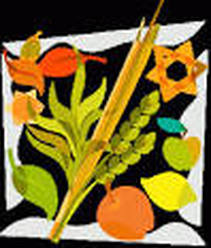 I figure since Reb Zalman tz'l loved my raps, that he would also love this song! Feel free to use with attribution. Lyrics below. חג סכות שמח My late rebbe, R' Zalman Schachter-Shalomi, zt"l, (זכר צדיק לברכה) was a master storyteller. He taught: "a good story is one where the mind surprises the heart". "A Year of Stories" is dedicated to his memory. I invite you to forward the link to these stories so that they find their way into the hearts of other listeners and tellers.
∞∞∞∞∞∞∞∞∞∞∞∞∞∞∞∞∞∞∞∞∞∞∞∞∞∞∞∞∞∞ Please consider offering a tax deductible donation to DC's Jewish Renewal community, Minyan Oneg Shabbat. Thank you. ***************** If you would like to be added to the growing list of "Year of Stories" followers, let me know at RebMarko@gmail.com, with "Year of Stories" in the subject line. ∞∞∞∞∞∞∞∞∞∞∞∞∞∞∞∞∞∞∞∞∞∞∞∞∞∞∞∞∞∞ Be Happy - It's Sukkot Music: Bobby McFerrin Lyriucs: Mark Novak Here’s a little song I wrote About the festival of Sukkot Be Happy - It’s Sukkot You take the lulav and the etrog too You shake em shake em shake em that’s what you do Be Happy - It’s Sukkot (chorus) Oy Oy Oy... Oy oy Hodu LaShem (2x) Ki Tov Oy Oy Oy... Oy oy Ki L’olam (2x) Chasdo We march around the congregation 7 hakafot in celebration Be Happy - It’s Sukkot We eat our meals out under the sky In the sukkahs we build and if you ask me why I’ll tell you Be Happy - It’s Sukkot (chorus) We greet and honor our ushpizin from Abraham to David and in between Be Happy, It’s Sukkot And should our minhag be egalitarian We welcome Sarah, Rachel, Esther, Abigail, and Miriam Be Happy, It’s Sukkot (chorus) V'samach'ta V'cha'ge'cha V'ha'yi'ta Ach Sameach Be Happy It's Sukkot (with apologies to Bobby McFerrin) ©Mark Novak 2014 I remember very clearly the day when Sandy Koufax sat out a World Series game. This Yom Kippur has brought about many a discussion about the same topic, only this time not for a player, but for Jewish fans (i.e. September 18 article in Washington Post) And though the Post failed to call me to ask for my two shekels (imagine that!), the Washington Jewish Week asked for my thoughts for an article that will hopefully hit the mailboxes today. Meanwhile, Tommy McFly 94.7 called me again last week for another "Blessing of the Baseballs, and we met just outside Nats Park before the Nats/Mets game. (Note my liturgical references as well as Renée juggling in the background) גמר חתימה טובה and Go Nats!! 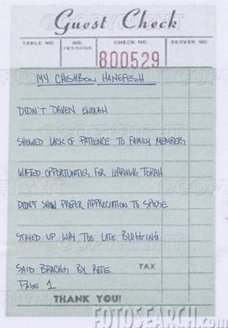 My late rebbe, R' Zalman Schachter-Shalomi, zt"l, (זכר צדיק לברכה) was a master storyteller. He taught: "a good story is one where the mind surprises the heart". "A Year of Stories" is dedicated to his memory. I invite you to forward the link to these stories so that they find their way into the hearts of other listeners and tellers. ∞∞∞∞∞∞∞∞∞∞∞∞∞∞∞∞∞∞∞∞∞∞∞∞∞∞∞∞∞∞ A man woke up in confusion every morning. He never remembered where he put his clothes the night before, and every morning he would spend a lot of time searching for the things he needed to put on. One night he hit upon a brilliant idea. He exclaimed, "I need a system! I must have an accounting for everything." And so that evening he made a list, writing down the exact location of each article of his clothing. He then pinned the note on his pillow, and fell asleep. When he awoke the next morning the first thing he saw was the list. He immediately reached for it and with the note in hand, he confidently rose from his bed and read the list aloud. "Pants - bedpost. Check. Shoes - under the bed. Check. Socks - in the shoes. Check." As he checked off each article of clothing, he put them on - one by one - until he reached the last of the items. "Cap - doorknob. Check!" With a final flourish, he placed the cap on top of his head, and smiled. "There, I did it, it worked!" In the next moment however his smile turned to concern, for as he checked the list one last time he realized that something was missing. "Hmmm....," he wondered. "Where am I?" ******************* Story re-crafted by R' Mark Novak from a version found in The Stories We Pray by Joel Luric Grishaver, who crafted his version from Chasidic Tales Re-Told, edited by Edith Samuel and prepared by R' Harvey Fields (out of print). A personal note: When a storyteller follows up a story by telling the listener what it means, my heart sinks and my mind withdraws. I leave it to you, gentle reader, to place these stories into the context of your personal journey, gleaning whatever meaning or interpretation resonates within. ***************** Let me know if you use the story and in what context. And......I'd love to hear YOUR stories! And if you are enjoying these stories/teachings and would like to support our work please consider offering a tax deductible donation to DC's Jewish Renewal community, Minyan Oneg Shabbat. Thank you. ***************** If you would like to be added to the growing list of "Year of Stories" followers, let me know at RebMarko@gmail.com, with "Year of Stories" in the subject line. A Tale from India, China, or some say Stanislav
Re-crafted by R' Mark Novak from various sources There was a water-bearer who had two large pots, one hung on each end of a pole, which she carried on a yoke across her neck. One of the pots had a crack in it, while the other was as perfect as the day it was crafted. And each day the water-bearer would draw water from the stream and return up the long, narrow pathway to her mistress’s house. Each day as she made her steep climb. By the time she returned to the house the pot with the crack had leaked half its water . The other pot remained full, always delivering a full portion. This went on daily for days, months, years - with the water-bearer delivering only one and a half pots full of water to her mistress’s house. And then one day, as they stood at the edge of the river, the cracked pot apologized to the water-bearer for its imperfection. After years of arriving half-empty and feeling guilty, it spilled its heart out. "I am so very sorry, and I want to apologize to you.” “What do you have to be sorry for?” asked the water-bearer. “I am ashamed that I can’t accomplish what I was fashioned to do. I am ashamed because the crack in my side causes water to leak out all the way back to your mistress’s house. Look at your other bucket - he doesn’t leak. I don’t know why you didn’t use me for kindling a long time ago. What good is a bucket that leaks? With great compassion, the water-bearer replied, “Let us return to the house, and as we walk, you will look and see.” And so they did, and as they progressed up the hill, the water-bearer made a grand gesture toward the ground beneath the bucket, pointing out the same path that they had walked for years. “Look at your side of the path - the yellow daises, the red nasurtium, , the pink and purple asters.” The water-bearer then turned her body, so that the pot could see the other side of the path. “Now, look at the other side - it is nothing but gravel and dirt.” “I don’t understand,” said the cracked pot. The water-bearer smiled. “ I planted flower seeds on your side of the path, and every day as we returned from the stream, you watered them. The seeds sprouted and grew, and every day I return to pick beautiful flowers to adorn my mistress’s table. If you were not just the way you are, she would not have such beauty to grace her house.” ***************** Please let me know if you use the story and in what context. I'd love to hear YOUR stories. Enjoy a beautiful animated version of the story at https://www.youtube.com/watch?v=h9Z60Msvm3c ***************** My late rebbe, R' Zalman Schachter-Shalomi, zt"l, (זכר צדיק לברכה) was a master storyteller. He taught: "a good story is one where the mind surprises the heart". "A Year of Stories" is dedicated to his memory. I invite you to forward the link to these stories so that they find their way into the hearts of other tellers and listeners. ***************** And if you are enjoying these stories/teachings and would like to support our work please consider offering a tax deductible donation to DC's Jewish Renewal community, Minyan Oneg Shabbat. Thank you. ***************** If you would like to be added to the growing list of "Year of Stories" followers, let me know at RebMarko@gmail.com, with "Year of Stories" in the subject line.  There once was a Jew who went out into the world to seek justice. Somewhere, he was certain, true justice must exist, but he had never found it. So he set out on a quest that lasted for many years. He went from town to town and village to village, and everywhere he went, he searched for justice, but never did he find it. In this way many years passed, until the man had explored all of the known world except for one last, great forest. He entered that dark forest without hesitation, for by now he was fearless, and he went everywhere in it. He went into the caves of the thieves, but they mocked him, and said, "Do you expect to find justice here?" And he went into the huts of witches, where they were stirring their brews, but they laughed at him and said, "Do you expect to find justice here?" The man went deeper and deeper into that forest, until at last he arrived at a little clay hut. Through the window he saw many flickering flames, and he was curious about them. So he went to the door and knocked. No answer. He knocked again. Nothing. At last he pushed the door open and stepped inside. Now, as soon as he stepped inside that cottage, the man realized that it was much larger on the inside than it had seemed to be from the outside. It was filled with hundreds of shelves, and on every shelf there were dozens of oil candles. Some of those candles were in precious holders of gold or silver or marble, and some were in cheap holders of clay or tin. And some of the holders were filled with oil and the flames burned brightly, while others had very little oil left. All at once, an old man, with a long white beard, wearing a white robe, appeared before him. “Shalom aleichem, my son,” the old man said. “How can I help you?” The man replied, “Aleichem shalom. I have gone everywhere searching for justice, but never have I seen anything like this. Tell me, what are all these candles?”. The old man said, “each of these candles is the candle of a person’s soul. As long as the candle continues to burn that person remains alive. But when the candle burns out that persons soul takes leave of this world.” The man asked, “can you show me the candle of my soul?” “Follow me,” the old man said, and he led him through that long labyrinth of a cottage, which the man now saw must be endless. At last they reached a low shelf, and there the old man pointed to a candle in a holder of clay and said, “that is the candle of your soul.” Now the man took one look at that flickering candle, and a great fear fell upon him, for the wick of that candle was very short, and there was very little oil and it looked as if it any moment the week would slide into the oil and sputter out. He began to tremble. Could the end be so near without his knowing it? Then he noticed the candle next to his own, also in a clay holder, but that one was full of oil, and its wick was long and straight and its flame burned brightly. “And whose candle is that?” The man asked. “I can only reveal each man’s candle to himself alone,” the old man said, and he turned and left. The man stood there, quaking. All at once he heard a sputtering sound, and when he looked up, he saw smoke rising from another shelf, and he knew that somewhere, someone was no longer among the living. He looked back at his own candle and saw that there were only a few drops of oil left. Then he looked again at the candle next to his own, so full of oil, and a terrible thought entered his mind. He stepped back and searched for the old man in every corner of the cottage, but he didn’t see him anywhere. Then he picked up the candle next to his own and lifted it up above his own. At that instant the old man appeared out of nowhere and grabbed his arm with a group like iron. And the old man said: “Is this the kind of justice you are seeking?” ****************Note: This is where I end the story when I tell it. The story as written continues for one more paragraph. Which version do you prefer, and why? The man closed his eyes because it hurt so much. And when he opened his eyes, he saw that the old man was gone, and the cottage and the candles had all disappeared. And he found himself standing alone in the forest and he heard the trees whispering his fate. And he wondered, had his candle burned out? Was he, too, no longer among the living? (Story as crafted by Howard Schwartz in his must-have-in-your-library, Tree of Souls, Pg 43-45. Howard notes two verses from Tanach that resonate through this story: צדק צדק תרדוף (Deut 16:20) and נֵר יְהוָה, נִשְׁמַת אָדָם (Proverbs 20:27). Beautiful. ***************** My late rebbe, R' Zalman Schachter-Shalomi, zt"l, (זכר צדיק לברכה) was a master storyteller. He taught: "a good story is one where the mind surprises the heart". "A Year of Stories" is dedicated to his memory. I invite you to forward the link to these stories so that they find their way into the hearts of other tellers and listeners. ***************** And if you are enjoying these stories/teachings and would like to support our work please consider offering a tax deductible donation to DC's Jewish Renewal community, Minyan Oneg Shabbat. Thank you. ***************** If you would like to be added to the growing list of "Year of Stories" followers, let me know at RebMarko@gmail.com, with "Year of Stories" in the subject line.
*******************
My late rebbe, R' Zalman Schachter-Shalomi, zt"l, (זכר צדיק לברכה) was a master storyteller. He taught: "a good story is one where the mind surprises the heart". "A Year of Stories" is dedicated to his memory. I invite you to forward the link to these stories so that they find their way into the hearts of other tellers and listeners. ******************* If you would like to be added to the growing list of "Year of Stories" followers, let me know at RebMarko@gmail.com, with "Year of Stories" in the subject line. ******************* And if you are enjoying these stories/teachings and would like to support our work please consider offering a tax deductible donation to DC's Jewish Renewal community, Minyan Oneg Shabbat. Thank you.  There was once a great rabbi, the sage of his age. A more righteous person was not to be found in his generation. He gathered his disciples, looked at each in turn, smiled, and breathed his last. A few days later, his chief disciple has a dream. In his dream, the rebbe was returning to be recyled into this world. "Rebbe!" the disciple said in alarm, "why are you coming back? You lived the most perfect of lives! What is there that could possibly have been left undone?" The rebbe smiled at the disciple in his dream, and said, "Do you remember when I was dying and you and all of my finest students gathered around my bed? Do you remember when I looked at each of you, and then I closed my eyes and smiled? Well. in that moment, I reviewed my entire life, and I saw that any opportunity there had been to learn a word of Torah, I had learned. And any opportunity there had been to do a mitzvah, I had done it. With that I breathed a sigh of satisfaction and my soul left my body." The disciple asked, "So rebbe, where was the imperfection?" "In that moment of satisfaction" (Story from R' Mitch Chefitz's The Seventh Telling. Please share other citations) ******************* My late rebbe, R' Zalman Schachter-Shalomi, zt"l, (זכר צדיק לברכה) was a master storyteller. He taught: "a good story is one where the mind surprises the heart". "A Year of Stories" is dedicated to his memory. I invite you to forward the link to these stories so that they find their way into the hearts of other tellers and listeners. ******************* If you would like to be added to the growing list of "Year of Stories" followers, let me know at RebMarko@gmail.com, with "Year of Stories" in the subject line. *************** A personal note: When a storyteller follows up a story by telling the listener what it means, my heart sinks and my mind withdraws. I leave it to you, gentle reader, to place these stories into the context of your personal journey, gleaning whatever meaning or interpretation resonates within. 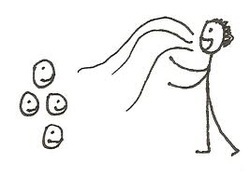 My late rebbe, R' Zalman Schacter-Shalomi, zt"l, (זכר צדיק לברכה) was a master storyteller. He taught: "a good story is one where the mind surprises the heart". "A Year of Stories" is dedicated to his memory. I invite you to forward the link to these stories so that they find their way into the hearts of other tellers and listeners. ^^^^^^^^^^^^^^^^^^^^^^^^^^^^^^^^^^^^^ In her book, The December Project, writer Sara Davidson shared this from one of her many meetings with Reb Zalman: He quoted Woody Allen, who said, “I don’t mind dying, I just don’t want to be there when it happens.” But Reb Zalman said “I do want to be there. It’s such a holy moment… I want to watch the last breath going out and whisper the Shema. I want to merge back with the infinite… like a drop in the greater ocean.” With that intention in mind - this week's story. (No story next week kiddies, we'll bedriving our daughter Kaziah to her fresh(wo)man adventure at Mt. Holyoke) ************************************ Once upon a time there was a little wave. The wave loved being a wave, bobbing along in the ocean, up and down, all day and all night. He enjoyed the wind and the fresh air, surrounded by lots of other waves, who he enjoyed watching and playing with. Then one day, the little wave noticed that something seemed to be happening to the waves in front of it. It noticed that it, along with all the other waves, was coming up to something big… the end of the ocean. The little wave saw a wave in front of it going up, higher and higher. That wave was filled with light and it was as high as it could possibly go (which was the best part of being a wave)… and then it came crashing down and smashed into bits. My God, this is terrible”, the wave said, “look what’s going to happen to me.” The little wave saw another wave in front of it do the same thing… going way up high and then come crashing down. The little wave saw this and became very afraid. A voice called out to him from amidst the sea, “Why do you look so sad?” The little wave answered, “Don’t you get it? We’re all going to crash! All of us waves are going to be nothing! Isn’t it terrible?” The voice remained calm, saying, “No, you don’t understand. You’re not only a little wave, you’re part of the ocean. You’re not only a little wave, you’re part of the ocean.” And in that moment, the little wave trickled onto the beach, and then turning, rolled back into the ocean. (I shaped this version of the story from a version that I have together with the short version that appears in Mitch Albom's Tuesdays with Morrie, Pg. 179) ******************* If you would like to be added to the growing list of "Year of Stories" followers, let me know at RebMarko@gmail.com, with "Year of Stories" in the subject line. *************** A personal note: When a storyteller follows up a story by telling the listener what it means, my heart sinks and my mind withdraws. I leave it to you, gentle reader, to place these stories into the context of your personal journey, gleaning whatever meaning or interpretation resonates within. 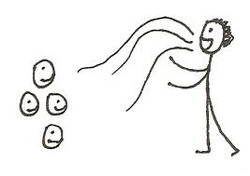 My late rebbe, R' Zalman Schacter-Shalomi, zt"l, (זכר צדיק לברכה) was a master storyteller. He taught: "a good story is one where the mind surprises the heart". "A Year of Stories" is dedicated to his memory. I invite you to forward the link to these stories so that they find their way into the hearts of other tellers and listeners. Tu b'Av was on Monday, and inspired me to post a love story - this time one for you to listen to. It is told by me and my b'shert, Renée Brachfeld, on our CD King Solomon's Daughter. I can tell you excactly where we heard it for the first time - under the chuppah at our wedding in 1993. It was translated from Sefer Tanchuma by Rabbi Jack Moline, and he spun the tale while inviting all of our family and friends to sing Od Yishama, which he wove throughout the story. So sit back for the next 11 minutes and enjoy this sweet tale of a love that was meant to be.. A variant written version of the story can be found here. Next week we'll return to a written story, but stay tuned for more stories in audio form. ***************
If you would like to be added to the growing list of "Year of Stories" followers, let me know at RebMarko@gmail.com, with "Year of Stories" in the subject line. *************** A personal note: When a storyteller follows up a story by telling the listener what it means, my heart sinks and my mind withdraws. I leave it to you, gentle reader, to place these stories into the context of your personal journey, gleaning whatever meaning or interpretation resonates within.
One day the Baal Shem Tov sits at his table with his people. The weather is getting cold, but he says, "Get the wagon together, and make sure you bring some lekach and some bronfen (cake and spirits), and come with me." So they get into the wagon, and after a time they come to an inn. The Baal Shem says to the innkeeper, "Can you prepare for a wedding?"
And the innkeeper says, "Yes, of course. How many people?" "Not too many people, "the Baal Shem replied, "but we'll need a nice meal." "No problem," the innkeeper says, "I'll send over to another fellow who has a roadhouse a little further on, so he and his wife can come and help. I'm a little short-staffed right now," he explains. "I usually have a young woman and a young man here to help me, but they're off today, the two of them." "Where did they go?" the Baal Shem says. "Well, they're about to get married, and today they went to the town to buy what they need for their new home together. They've been saving up for years." "Very good," the Baal Shem says, "All right, start preparing." Meanwhile, the young couple are on their way to town. No sooner do they get to the market when they see a family being dragged through the streets in chains. The town crier shouts in front of them, "These people haven't paid their rent to the landlord! They are going to be put into the darkest jail until they rot there and die!" The couple are appalled. "How much do they owe?" they ask the town crier. "Three hundred rubles," he says. Three hunderd rubles! It is all they have. But he looks at her and she looks at him, and yes, they take off their money belts and give everything they have to redeem the family. Before the family have even recovered enough to thank them, the couple are gone. On their way back they agree: "We can't tell the people that we gave away all our hard-earned money: they'll call us fools! Let's rough each other up a little, and when we get back we'll say that robbers fell on us and took our money." So they came back bruised and empty-handed to find the inn in an uproar, preparing for a wedding as the Baal Shem had requested. The innkeeper rushes up and says, "Good, you're here! Quick, I need help setting up - oy, vey, what happened to you? Where's the furniture?" And they tell him the whole tale of woe. At this, the Baal Shem calls them both aside and says, "It's your wedding that we're preparing for, and I am here to marry you myself." And so they were married. Now it was the custom that the guests at a wedding would say a droshe geshank, a little speech announcing the present that each guest is giving to the couple. "I give a pair of handsome brass candlesticks," one of the innkeepers says. "I'm going to give a baking trough," says another. At some point they return to the Baal Shem. "What about you, Rabbi?" And the Baal Shem says, "To the groom I give the estate of Count Potptzki. To the bride, I give Countess Potozki's jewelry." All the guests laugh uproariously and they continue with their meal and the seven traditional blessings. Suddenly before dessert is on the table, the Baal Shem says to the couple, "You must leave now, right away. Get on your wagon and horse and go." "Where should we go?" "Into the forest. Go." In the meantine a snowstorm has started, a blizzard. The couple are in the midde of the forest and lose their way. All of a sudden, the horse rears up and refuses to go a step farther, When they peer ahead to see what the problem is, they see the body of a young boy lying in the snow. They dismount quickly and pick him up. He's still alive, and they rub him all over and give him some schnapps and the lekach that the Baal Shem Tov gave them for the way. "Who are you?" they ask the boy. "Where are your parents?" "I am the son of the Count and Countess Potozki," the boy tells the. I received a new horse for my birthday, but the horse threw me off and I don't remember anything after that." And he points them to the castle of the Count. Meanwhile the Count and and his wife are beside themselves with worry. The horse they'd bought for their son had returned without its rider. The Count's followers had been unable to find the boy in the worsening storm, and the weather was getting so bad that they were afraid to continue. Finally, in desperation, the count said, "I pledge my entire estate to the person who brings back my son." "And I pledge my jewelry as well!" says the countess. Just then the couple arrives with the boy on their horse. And that's how the Baal Shem's drosha geshank to that couple, who had given all their money away to redeem a captive family, came to pass. * * * * * * * * * * * * * In the book, Reb Zalman tells us that this is an example of a good story for a melaveh malka, a post-Shabbas Saturday night gathering. Why? Because he explains that "embedded in these tales was the message that any one of us, with no warning or preparation, may be presented with the opportunity to serve as the Holy One's instrument to improve the world - if we rise to the occasion. This vision, this mystic ideal, this high ambition, is what we take forward with us into the week" (Jewish With Feeling Pg. 74) * * * * * * * * * * * * * If you would like to be added to the growing list of "Year of Stories" followers, let me know at RebMarko@gmail.com, with "Year of Stories" in the subject line. * * * * * * * * * * * * * A personal note: When a storyteller follows up a story by telling the listener what it means, my heart sinks and my mind withdraws. In this case however, I could not resist. It's a machaya to have been given the sod (secret) from Reb Zalman. * * * * * * * * * * * * * Question: Is the horse the same horse as in story #3? :>) The Optimist and The Pessimist |
Mark Novak is a "free-range" rabbi who lives in Washington DC and works, well, just about everywhere. In 2012 he founded Minyan Oneg Shabbat, home to MOSH (Minyan Oneg Shabbat), MindfulMOSH (Jewish mindfulness gathering), and Archives
June 2017
Categories
All
|
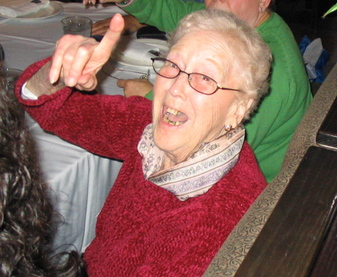

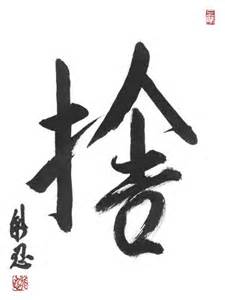
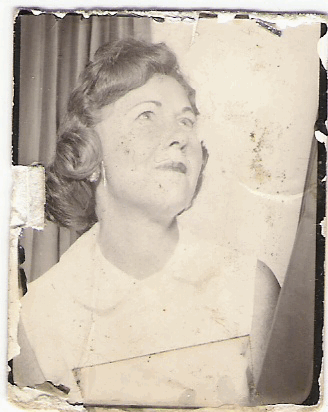
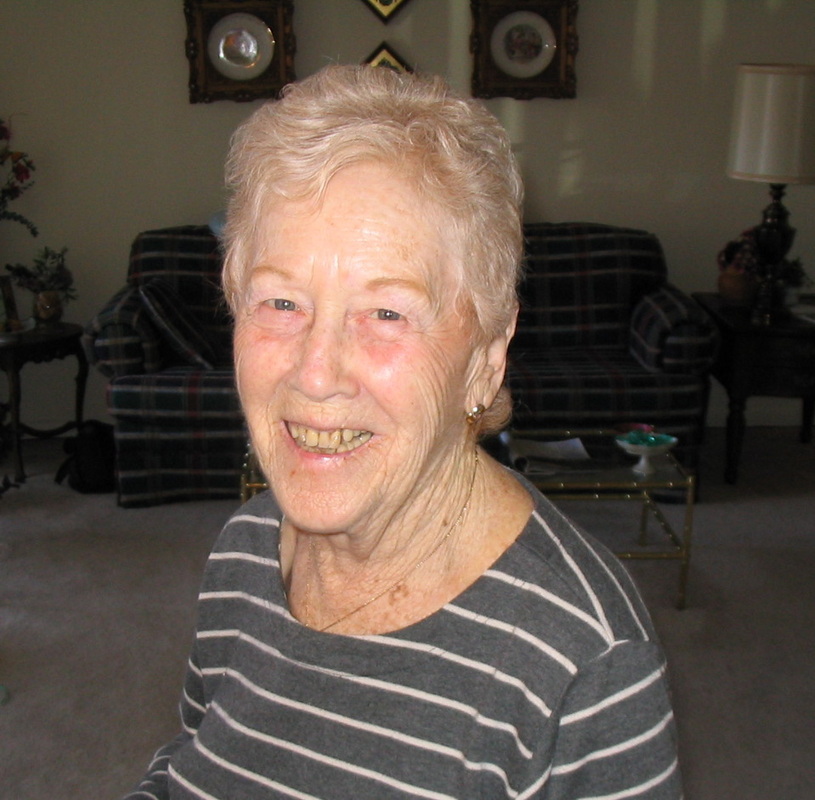

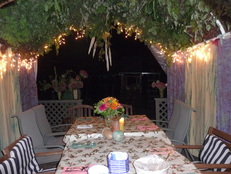

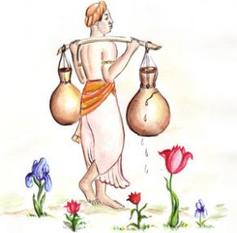

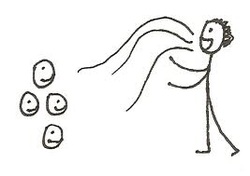
 RSS Feed
RSS Feed
